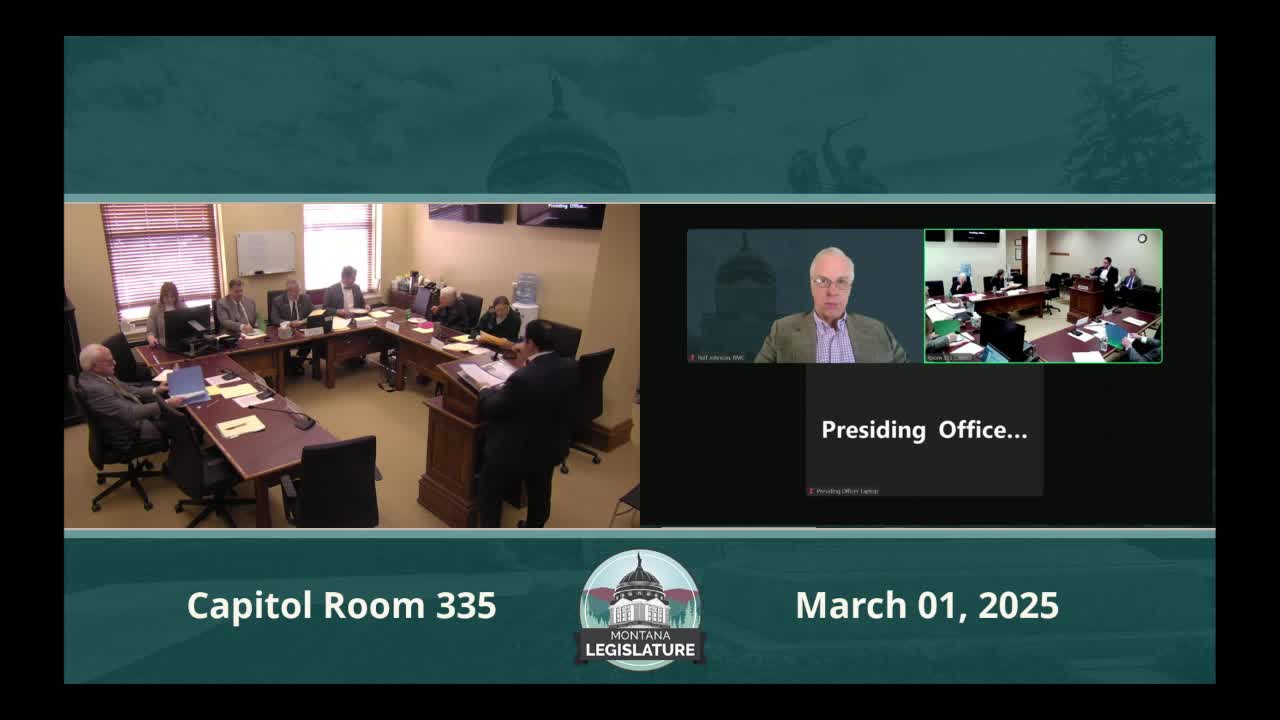Senate committee hears bipartisan push for optional tribal-state relations training for legislators
Get AI-powered insights, summaries, and transcripts
Subscribe
Summary
Senate sponsor introduced Senate Bill 311 on the record as a narrowly drawn measure to require that legislative services make tribal-state relations training available to legislators on a voluntary basis.
Senate sponsor introduced Senate Bill 311 on the record as a narrowly drawn measure to require that legislative services make tribal-state relations training available to legislators on a voluntary basis.
The bill “adds tribal-state relations as an optional training for legislators,” sponsor Senator Shane Morigeau said. “People want to go, they can go. If they don't want to, they don't have to.”
The bill's sponsor and several proponents told the Senate Legislative Committee that the training would give lawmakers basic factual grounding about Montana's tribal nations — their inherent sovereignty, treaties, federal and state policies, and areas of practical partnership — which supporters said would reduce legal disputes and improve policymaking.
“Senate Bill 311 is an excellent opportunity to build on state-tribal relations to ensure that when legislation is drafted, debated in committee or on the floor, the legislature has a foundation of understanding to make educated decisions in the best interest of all Montanans,” said Patrick Yawake, testifying for the Blackfeet Nation, Fort Belknap Indian Community and Rocky Boy, adding that prior education could “save on real taxpayer dollars that go to lawsuits that could have been prevented.”
Legislative staff and district senators probed how the training would be provided and who would teach it. Skye Foster, acting chief information officer for the legislative branch, and Legislative Services Division staff said the division routinely brings in outside subject-matter experts to supplement staff presentations during orientation and other legislative trainings.
“Over the course of time, depending on who we have on staff and what the issues are, we might need to rely on somebody else to do that training, and we would have the ability to make those requests and invite those people,” Legislative Services staff member said during committee questioning.
Several senators raised concerns about whether the content could cross into advocacy. Senator Mike Emmerich said he worried that “optional always becomes mandatory” and that training that addresses socioeconomic and cultural issues could stray from neutral, mechanics-focused training into advocacy. Sponsor Morigeau and tribal representatives rejected that characterization, saying the intent is informational rather than lobbying.
Morigeau repeatedly emphasized the bill is voluntary and could be pared down: “If you guys wanted to streamline this bill, you could conceptually amend all the sections out and leave section 3, which just simply says they'll include state-tribal relations training,” he told the committee.
Committee members asked the sponsor to consult with the director of Indian affairs and with legislative staff about implementation. The hearing was closed with the sponsor signaling willingness to work on amendments and to bring a revised proposal back for executive action at a later date.
The hearing record shows sustained engagement from tribal governments and the director's office; committee members said they expect to consider amendments before moving the bill out of committee.
